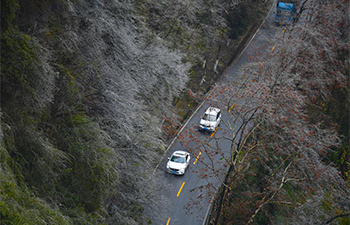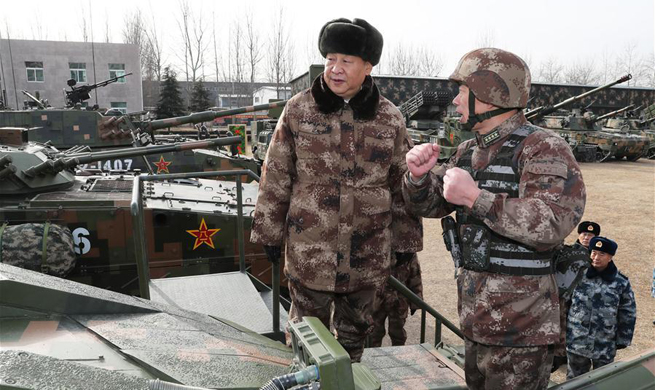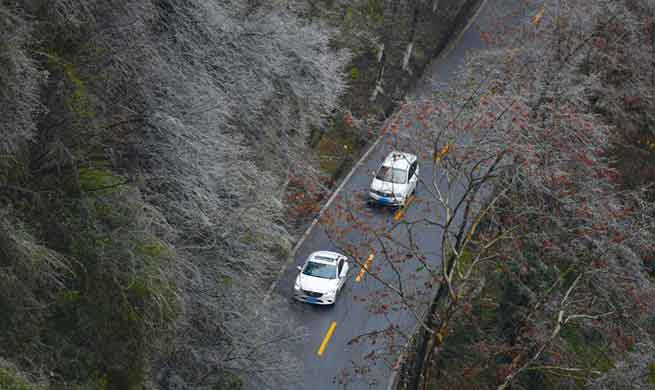SYDNEY, Jan. 5 (Xinhua) -- Australia's first electric plane has successfully completed its maiden flight in Perth, after taking off from Jandakot Airport and conducting a series of mid-air tests.
"It was very smooth, everything went as planned," Electro.Aero's finance director Richard Charlton told Xinhua on Friday.
"The aircraft completed a circuit pattern in front of ordinary petrol powered aircraft and conducted two of those circuits with a perfect take off and landing."
Purchased from Europe, the Pipistrel Alpha Electro two-seater, single-engine is a production aircraft that's powered by two lithium-ion batteries and can be recharged in just one hour.
Although skeptics may feel somewhat uneasy about flying in an electric-powered plane, the team at Electro.Aero say it may actually be far safer than travelling on board conventional fuel-powered aircraft.
This is because a petrol engine has hundreds of moving parts that can break, wear out or fail.
Electric propulsion on the other hand is much simpler, meaning there is less that can go wrong.
Another benefit is that at altitude, the motor is whisper- quiet with almost no vibration.
"Everything we do has safety as the overwhelming priority," Charlton explained. "The crucial stakeholder for us is the regulators, which is Civil Aviation Safety Authority and Recreational Aviation Australia."
Along with operating the aircraft, the company also develops aviation technology.
Well-known Western Australian entrepreneur, Josh Portlock, who founded Electro.Aero two years ago, also owns an industrial drone company and has a vision to pioneer the conversion of all aviation technology to electric power.
So at the moment, most of Electro.Aero's operations are focused on the production and development of electric ducted fans that will power the next generation of aircraft around the world.
Despite all the positives however, it may still be quite some time before larger passenger jets make the transition to electric propulsion.
The Alpha Electro is only capable of one hour of flight time with 30 minutes of reserve charge before it has to re-energise.
But according to Charlton, "that will only get better as battery technology radically continues to improve."
And at a cost of around 2 U.S. dollars an hour to run, the technology is vastly more cost effective than jets fuel.
In the coming months, the aircraft will be used to train aspiring pilots.
"This aircraft will operating with students all the way to their pilots license," Charlton said.
"It's crucial because it proves the technology, gains public acceptance and gets pilots qualified on electric."

















